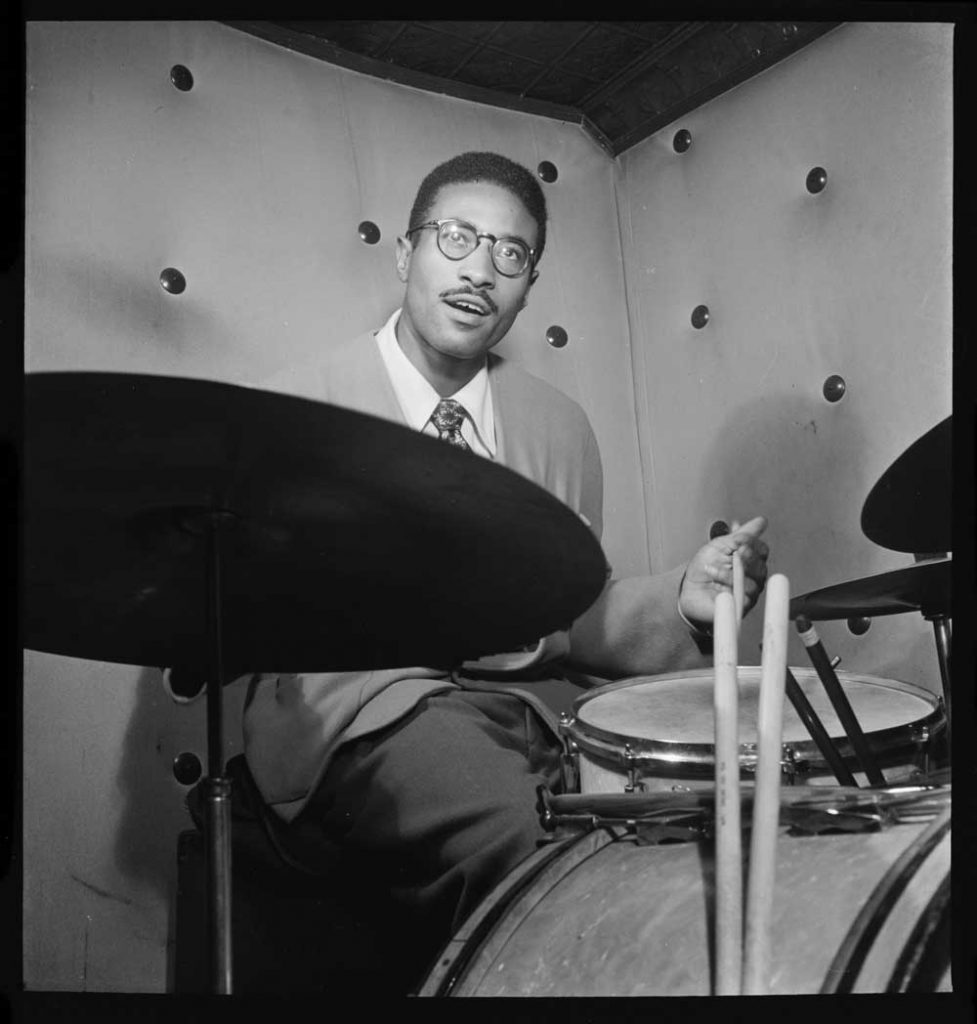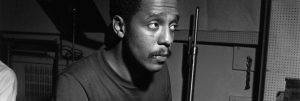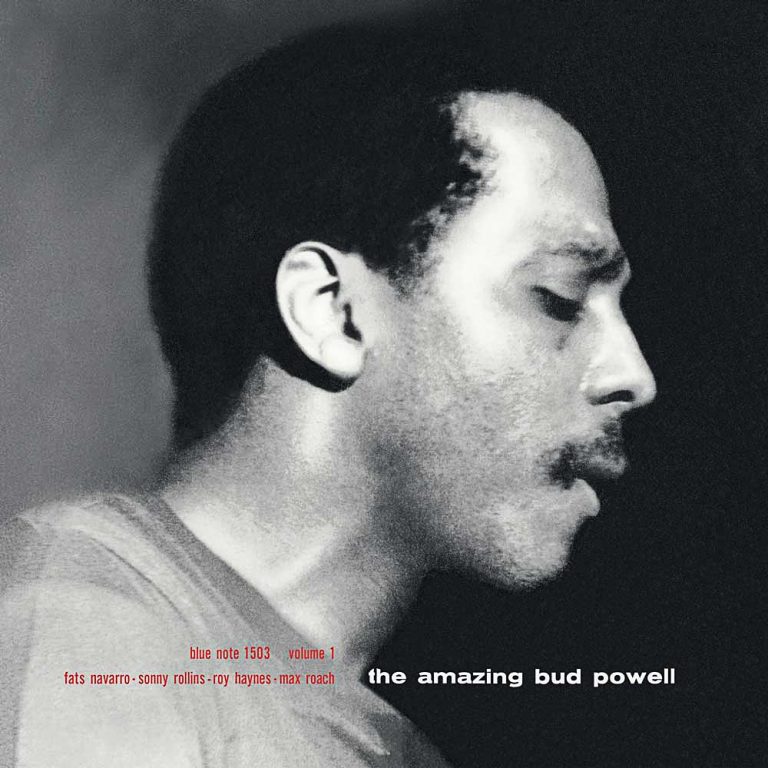Bud Powell was already an undisputed giant of bebop by the time he was preparing to record the music that would become “The Amazing Bud Powell Vol. 1”. As a close friend and mentee of Thelonious Monk, Powell was considered among the inner circle of bebop revolutionaries, almost from the moment he stepped inside Minton’s Playhouse. Powell had soaked up Monk’s harmonic ideas and out-of-the-box melody lines, but he had also played with Charlie Parker, and was one of few pianists whose right hand could fly as nimbly as Bird.
While Powell had shown himself to be a pianist operating at the highest level, by 1949 he was equally proving to be a composer of exceptional ability. The first session for Blue Note featured Powell with a rhythm section of Tommy Potter on bass and Roy Haynes on drums, together with trumpeter Fats Navarro and a young Sonny Rollins on sax, certainly one of the finest, most exciting bands of the day. These sessions introduced Powell’s compositions “Bouncing with Bud” and “Dance Of The Infidels,” as well as his tune “Wail”, while the quintet were also let loose on Charlie Parker’s “Ornithology”, the standard “You Go To My Head” and Monk’s “52nd St Theme.”
It’s a treat to hear the virtuosic chemistry between Navarro and Powell, whose close friendship could also be fiery. In the liner notes for “The Fabulous Fats Navarro”, Leonard Feather describes a jam session at the Three Deuces that ended with Navarro smashing his trumpet over Powell’s piano, narrowly missing his fingers. Powell was known to chide the other players, and the pair clearly pushed each other to the edge of their prodigal abilities.
It was also a heady experience for the nineteen-year-old Sonny Rollins, who admirably stepped up in one of his earliest recording sessions, weaving wonderful lines as he and Navarro blow through Powell’s changes. Rollins recalled that after a single wrong note, Powell‘s icy stare ensured he never made that mistake again.
It’s hard to believe, but the second recording session in 1951, with drummer Max Roach and bassist Curley Russell, raised the bar even higher. The trio had already played together over the years, and for this date, Powell balanced out the show standards, with two songs that had more of an afro-cuban groove, namely Dizzy Gillespie’s “Night In Tunisia” and his own “Un Poco Loco.” We’re also treated to another Powell composition, “Parisian Thoroughfare”, a helter-skelter soundtrack to the bustle of the city, start-stop musical twists and turns.
But it’s “Un Poco Loco” that steals the show, a bebop masterpiece that’s also one of the earliest examples of an afro-cuban influence in jazz. Max Roach remembered that during the recording session, when he’d played a conventional afro-cuban beat for the first take, Powell turned to him and said: “You’re supposed to be Max Roach, is that all you can think of?” In response, Roach flipped the afro-cuban groove on its head, to an 8/8 rhythm. It turned “Un Poco Loco” into something altogether different, a sublime moment of melodic and rhythmic sophistication.

That’s the beauty of this repress – it also includes alternate takes. This makes it possible to compare versions and hear Powell’s improvisational mind at work, refining his choices with each run-through to arrive at the well-considered masterpieces. As Don Cherry once said: “Bud could play the same thing differently every time.”
While Powell’s life had many tragic interludes that affected his playing, on “The Amazing Bud Powell Vol. 1” his fingers were still moving at a breakneck pace. And in hindsight, we get to hear not only the shackles of the piano being well and truly broken by a musical genius, but also how he shaped the sound of so much music that followed.
Read On… Joining The Bops 1/3 – Bebop
Max Cole is a writer and music enthusiast based in Düsseldorf, who has written for record labels and magazines such as Straight No Chaser, Kindred Spirits, Rush Hour, South of North, International Feel and the Red Bull Music Academy..
Header image: Bud Powell. Photo: Francis Wolff/Blue Note Records.



